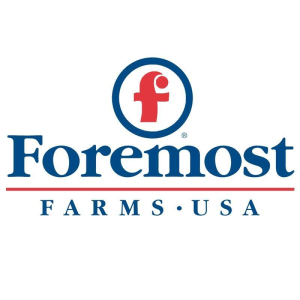CALS Consulting, an experiential learning opportunity through the Department of Agricultural & Applied Economics, matches businesses and organizations with current students to engage on a semester long real-world project.
Read more below about how two recent CALS Consulting projects helped support dairy business innovation.
“UW-Madison students support dairy business innovation through class projects“
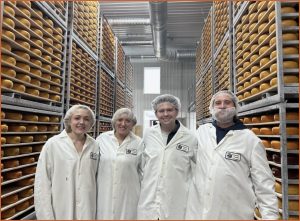
Through this opportunity, project partners receive free consulting services from the next generation’s workforce while students are given the ability to practically apply their education and assist their project partners with real-world issues. Project partners include farms, food & agricultural businesses, and conservation & environmental organizations. See below for more information on current and previous CALS Consulting Projects.
Is your business or organization interested in participating in a future cohort of CALS Consulting? If so, contact Jeremy Beach at jpbeach@wisc.edu to learn more.
Fall 2025 CALS Consulting Projects
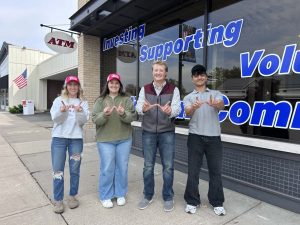 Project Partner: First Community Bank Milton
Project Partner: First Community Bank Milton
Project Mentor: Alex Held
Student Team: Justyne Frisle, Priyanshu Ghosh, Emma Mason, Alyssa Swanke
Project Title: Marketing for Local Impact: Expanding Agricultural & Commercial Banking Across Rock County
Project Description: First Community Bank, a long-standing community bank in Milton, WI, specializes in agricultural and commercial lending while maintaining strong ties to their community. Our group is developing a strategic marketing plan to expand the bank’s presence across Rock County and surrounding areas by analyzing marketing trends, competitor activity, and client needs. The recommendations will focus on targeted outreach to increase brand visibility, strengthen client relationships, and drive growth in both loan and deposit portfolios.
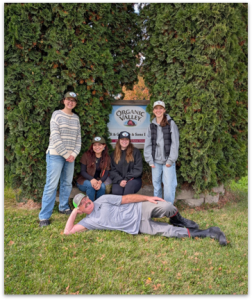 Project Partner: Organic Valley
Project Partner: Organic Valley
Project Mentors: Dawn Burns & Joe Kim
Student Team: Dehlia Fallon, Kate Klaehn, Emma Komis, Meghan Smith, Lizbeth Gallegos
Project Title: Breakfast Reimagined: Growing the Future of Organic Mornings
Project Description: In collaboration with Organic Valley, our team is developing innovative breakfast product concepts that align with the cooperative’s mission to bring ethically sourced, organic food to families nationwide. Through consumer and market research, we aim to identify unmet needs and opportunities within the breakfast category, focusing on products that highlight ingredients grown by Organic Valley farmers—such as organic oats, soy, wheat and seasonal produce. The project will culminate in the creation of 2-3 market-ready concepts, supported by branding, packaging, and go-to-market recommendations designed to strengthen Organic Valley’s presence beyond the dairy aisle and position the brand as a leader in organic breakfast innovation.
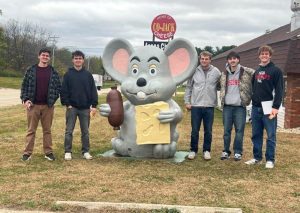
Project Partner: Actus Nutrition
Project Mentors: Ty Dikmen, Duncan Jochimsen, Jim Natzke
Student Team: Daniel Casey, Samuel Elko, Sean Heard, Diego Morales, Charlie Van Ness
Project Title: Sustainable Whey Forward: Optimizing Actus Nutrition’s Supply Chain
Project Description: Actus Nutrition is a leading manufacturer of milk and whey protein ingredients and works directly with local cheese makers to source its products. Because whey must be pasteurized quickly after production, transportation windows are short which limits the haul distance and reduces manufacturers’ ability to capitalize on these byproducts. Our team will develop a feasibility model to support investment in on-site chillers, reverse osmosis, and water polishing systems. By working closely with Actus Nutrition and local producers, we aim to provide data-driven recommendations that highlight both the financial returns and environmental benefits for a more sustainable dairy processing practice.
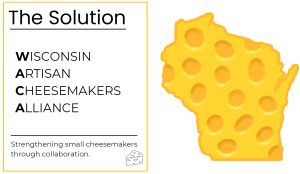 Project Mentor: Jeff Schwager
Project Mentor: Jeff Schwager
Student Team: Faith Baerwolf, Jonathan Chittick, Luke Mechler, Jonathan Minnis
Project Title: The Artisan Alliance: Strengthening Small Cheesemakers Through Collaboration
Project Description: Our Artisan Cheese Collective project aims to help award-winning local cheesemakers strengthen their position in a market dominated by larger producers. The project focuses on two main goals: first, creating a member-style group that allows small cheesemakers to work together, share resources, and present a united front; and second, developing a bundled sales team model where one representative can communicate with distributors on behalf of multiple cheesemakers, making the process more efficient. To support these goals, our team will review current operations, distribution practices, and industry examples, while also gathering input directly from cheesemakers and distributors. The result will be a clear and realistic framework that shows how small producers can keep their unique identities while gaining the advantages of working as a collective in sales, marketing, and distribution.
This is an accordion element with a series of buttons that open and close related content panels.
Spring 2025 CALS Consulting Projects
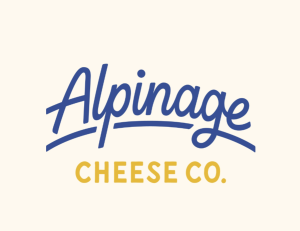 Project Partners: Jeff Schwager & Jim Natzke
Project Partners: Jeff Schwager & Jim Natzke
Project Operation: Alpinage Cheese Company
Student Team: Kate Klaehn, Morgan Knilans, Justyne Frisle
Project Title: Melting Boundaries: Merging French & Wisconsin Traditions in the U.S. Cheese Market
Project Description: Alpinage Cheese Company brings a fresh perspective to artisan cheese, blending the rich traditions of French and Wisconsin cultures into a premium Raclette cheese. Our team has been tasked with analyzing the current U.S. market, evaluating key competitors and their strategic marketing approaches, and developing a targeted social media strategy to enhance brand recognition and customer loyalty. Additionally, we aim to support data-driven decision-making for optimizing product specifications, both for existing offerings and future innovations.
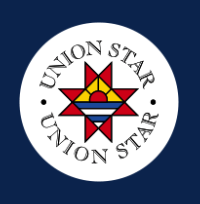 Project Partners: Jeff Schwager & Jim Natzke
Project Partners: Jeff Schwager & Jim Natzke
Project Operation: Union Star Corporation
Student Team: Josephine Ammons, Rafael Miari, Emily Stumpf, Madeline Vukovich
Project Title: Retail Location and Product Expansions for Union Star Corporation
Project Description: In partnership with Union Star Corporation, one of the last small family-owned cheese factories in Wisconsin, our team is researching and analyzing the potential opening of an additional retail location and the feasibility of entering the bottled milk market. We will work together with Union Star and Dairy Farmers of Wisconsin (DFW) to analyze the data provided to us to create a business plan and present our recommendations. By evaluating market demand, competition, and operations, we aim to provide strategic recommendations supporting Union Star’s growth and long-term success.
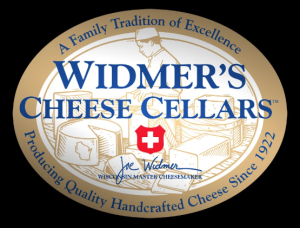 Project Partners: Jeff Schwager & Jim Natzke
Project Partners: Jeff Schwager & Jim Natzke
Project Operation: Widmer’s Cheese Cellars
Student Team: Owen Hirsch, Adam Hugel, Jacob Roden
Project Title: Keeping Tradition Alive: Revitalizing Widmer’s Heritage Cheeses
Project Description: Widmer’s Cheese Cellars, a family-owned Wisconsin cheese brand in Theresa, WI, has been crafting high-quality cheeses since 1921. Now led by fourth-generation cheesemaker Joey Widmer, the company continues its legacy of producing traditional heritage cheeses like Brick and Butter Kase. However, as consumer preferences shift, these time-honored cheeses risk being overlooked. Our goal is to generate consumer demand (“pull”)—increasing awareness and excitement among consumers to encourage grocery stores and restaurants to feature Widmer’s cheese prominently. This effort will focus on strategic marketing, social media engagement, and direct outreach to both Wisconsin businesses and consumers. While embracing modern marketing strategies, Widmer’s remains deeply rooted in its Swiss heritage, ensuring its cheeses continue to be cherished for generations to come.
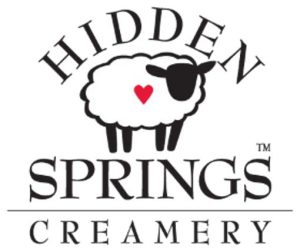 Project Partners: Jeff Schwager & Jim Natzke
Project Partners: Jeff Schwager & Jim Natzke
Project Operation: Hidden Springs Creamery
Student Team: Alison Johnson, Parker Higginbottom, Iris Ge, and Taylor Eick
Project Title: Education and Expansion of the “Hidden” Sheep Cheese Industry
Project Description: Hidden Springs, a fully operational sheep dairy in Westby, Wisconsin, produces high-quality sheep cheeses, including spreads and fetas. While sheep cheese is widely enjoyed in countries like Spain, Italy, and France, it remains a niche market in the U.S. Partnering with advisors and Hidden Springs, our team is developing strategic recommendations to increase awareness and demand for sheep cheese. Through educational initiatives and targeted social media promotion, we aim to bring visibility to this “hidden” industry, creating growth opportunities not only for Hidden Springs but also for other sheep dairy farmers across the country and Wisconsin.
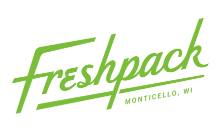 Project Partners: Jeff Schwager & Jim Natzke
Project Partners: Jeff Schwager & Jim Natzke
Project Operation: Freshpack
Student Team: Kirby Cain, James Li, Jon Verhasselt
Project Title: Freshpack Dipper Snack Marketing and Competitor Research
Project Description: In this project our team is working with Freshpack to analyze, research and compile data on a variety of “grab-n-go” snacks ranging from cheese based dips to guacamole dips. The main goal that we have been tasked with is finding a proper market in which to place a 2oz dippable grab-n-go snack. Along with this, Todd (CEO and President of Freshpack) mentioned that he would appreciate a competitor analysis. Our group will conduct data analysis and gain insight into markets through data from the DFW. This data includes, but is not limited to: weight (of packaging), natural cheeses (what other companies provide natural cheese) snack size (by cal, protein, fats etc.), other cream cheese based snacks and grab-n-go snacks that weigh less than 3 ounces.
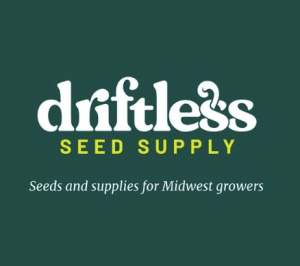 Project Partner: Dylan Bruce
Project Partner: Dylan Bruce
Project Operation: Driftless Seed Supply
Student Team: Emma Vos, Lauren Newmiller, Valerie Achenbach, Yeon Jun Lee
Project Title: Market Development & Intellectual Property Research for Driftless Seed Supply
Project Description: Our team is collaborating with Driftless Seed Supply, a small business that specializes in growing and selling high quality seeds that thrive in the Midwest, and emphasizes integrity and transparency throughout their company. We are looking to identify strategic opportunities in the Midwest’s horticultural market, with a particular focus on Chicago. We aim to build a marketing strategy that enhances Driftless Seed Supply’s growth by analyzing industry trends, consumer demand, and regulatory factors. Additionally, we are collaborating with UW-Madison and the Wisconsin Alumni Research Foundation (WARF) to explore commercial agreements leveraging university-owned intellectual property, strengthening Driftless Seed Supply’s IP portfolio and market positioning.
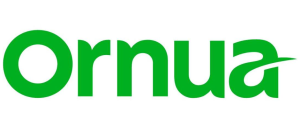 Project Partner: Kurt Thomas
Project Partner: Kurt Thomas
Project Operation: Ornua
Student Team: Camille Bender, Christopher Gavin, Kate Klaehn, Owen O’Connor
Project Title: Marketing at Home and Abroad – Strategies for Growth and Stability
Project Description: Our team is collaborating with Ornua Ingredients to create marketing strategies to expand their brand and volume. Ornua Ingredients has faced barriers when marketing, specifically due to its inability to advertise its product partners and the complexity of international export regulations. Our project focuses on competitor analyses, search engine optimization, and event opportunities, identified by Ornua and our team to optimize their selling ability. Furthermore, we plan to assist with Ornua Ingredients’ social media presence through different platforms. Through understanding marketing best practices, we plan to allow the sales team to better advertise the capabilities of their product lines to potential customers. Additionally, we aim to analyze trade policy and create recommendations to best target opportunities for growth abroad.
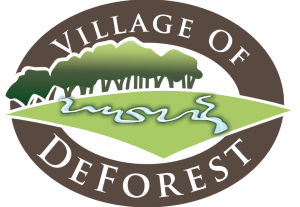 Project Partner: Bill Chang
Project Partner: Bill Chang
Project Operation: Village of DeForest
Student Team: Griffin Beronio, Lauren Mckay, Jeffrey Russell, Madeline Vukovich
Project Title: Examining Conservation and Rural Land Acquisition Best Practices for the Expansion of the Village of Deforest
Project Description: The Village of Deforest is expecting significant growth in the coming years and has begun looking to expand westward into the neighboring town of Vienna. Vienna encompasses agricultural land which, if sold, could be rezoned and redeveloped for industrial, commercial, and residential purposes by the Village of DeForest. Our project aims to help DeForest better understand their neighbors’ plans for their land and address their needs and expectations as they move forward with sustainable development in the future. We plan to do this through two primary approaches: first, by creating guidelines for establishing open lines of communication between the agricultural landholders and the Village of Deforest, specifically regarding their prospective land use plans, and second, by gauging how landowners in environmental corridors have worked to conserve nearby natural resources through sustainable land use practices. Due to the sensitivity of the topic, our goal is to maintain neutrality between the municipality and agricultural landowners. Our final deliverables will cover our findings in these approaches and include literature review and a report on other qualitative data, including our conclusions from conversations had in any focus groups and interviews with rural development experts.
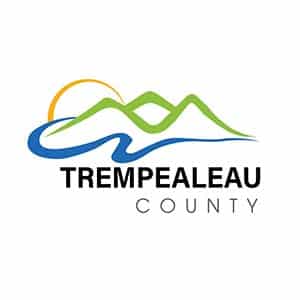 Project Partner: Dave Carlson
Project Partner: Dave Carlson
Project Operation: Trempealeau County
Student Team: Tucker Desmond, Ava Del Giudice, Deven Danak, Camron Cafferty
Project Title: Planning for Trempealeau County’s Outdoor Recreation Future
Project Description: Trempealeau County, a scenic region in western Wisconsin, is experiencing projected population growth. This presents new opportunities for economic growth and recreational development. Given the county’s natural attractions, including the Mississippi, Trempealeau, and Black Rivers, as well as the rolling hills and established parks, there is a large potential to expand its recreational offerings to attract both residents and visitors. Our project aims to assess current recreational businesses, identify gaps in supporting infrastructure and explore strategic opportunities for growth. As their population grows, our goal is to maximize the county’s potential by collaborating with the county and interviewing business owners to gather insights and provide recommendations.
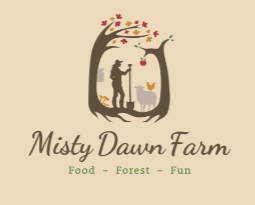 Project Partner: Ingrid Daudert
Project Partner: Ingrid Daudert
Project Operation: Misty Dawn Farm
Student Team: Reuben Fendt, Kathryn Leonard, Asher Salkin
Project Title: Get With The Cash Flow: Agrotourism and Marketing At Misty Dawn Farm
Project Description: Misty Dawn Farm is a sustainable agroforestry farm in Janesville, Wisconsin, providing educational services to the surrounding communities as well as maple syrup and Shiitake Mushroom production. Our project focuses on connecting the farm with various markets and opportunities to get immediate cash flow, so that eventually they may build a small-scale processing kitchen for their maple syrup production.
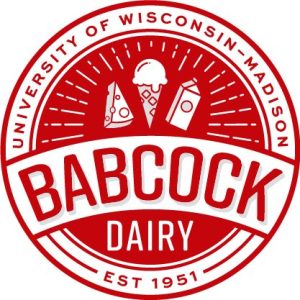 Project Partner: Kari Backes
Project Partner: Kari Backes
Project Operation: Babcock Dairy Store
Student Team: Claire Esselman, Camille Bender, Sydney Miller
Project Title: Selling the Story of Babcock Dairy Store: Comprehensive Business Analysis & Brand Development
Project Description: The Babcock Dairy Store, one of the iconic flagship dairy stores of Wisconsin, is located on the University of Wisconsin-Madison campus and sells fresh-made dairy products to consumers. Our team is focused on developing a comprehensive analysis of Babcock products and a marketing plan for strategic growth. This includes comparing local economic data of cheese marketability and pricing to ensure that Babcock products are enticing for the consumer. For long-term sustained growth, our team will develop a marketing plan to focus on building brand awareness and growing recognition for the Babcock brand.
Fall 2024 CALS Consulting Projects

Project Partners: Jeff Schwager & Jim Natzke
Project Operation: Crave Brothers Farmstead Cheese
Student Team: Alison Johnson, Sophia Thanasouras, Morgan Knilans
Project Title: Market Entry and Brand Development For Crave Brothers Burrata Launch
Project Description: Crave Brothers Farmstead Cheese, a family-owned company, is renowned for its expertise in producing and distributing fresh mozzarella across the country. Our project focuses on the introduction of burrata, a new addition to the Crave Brothers Cheese lineup. We will work collaboratively to analyze data provided by the Dairy Farmers of Wisconsin (DFW) and create a written marketing plan to present our key market and marketing results and provide them with our recommendations for the introduction of their new product.
Project Partners: Jeff Schwager & Jim Natzke
Project Operation: Foremost Farms
Student Team: Faith Baerwolf, Nate Hartwig, Cam Cafferty, Kate Klaehn
Project Title: Foremost Farms: Search for Value-Added Opportunities
Project Topic: Our team is collaborating with Foremost Farms to identify strategic opportunities within the value-added cheese market that can enhance profitability for the cooperative and its members. Although Foremost Farms focuses on producing commodity cheese, the organization seeks to capture a greater share of value-added margins by leveraging current market trends and consumer preferences. By analyzing the value-added cheese marketplace in the United States, we aim to provide actionable recommendations that align with Foremost Farms’ existing partnerships, supporting the cooperative’s growth and positioning in a competitive industry.
Spring 2024 CALS Consulting Projects
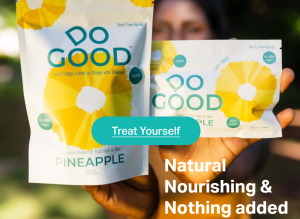
Project Partners: Jordan Cowan & Rosa Huang
Project Operation: Do Good Earth
Student Team: Isabelle Barmore, Yibo Chen, Gabrielle Shedbalkar-Harden, Maddie Smerlinkski
Project Title: DoGood Dynamics: Entering Retail and Elevating Engagement Through Innovative Branding and Social Strategies
Project Topic: This semester our team is working with Do Good Earth, a dried fruit start-up company based out of Uganda. We are working with Do Good to launch their first round of products: dried jackfruit, dried pineapple, and dried banana. To get Do Good off the ground, we will be working on product branding, social media presence, entering retail markets, and attending industry events and trade shows. Our project partners have asked our team to determine Do Good’s target audience and ideal spaces or markets to launch into. We will evaluate what type of clients to focus on and how to reach them. They have also asked us to evaluate whether their business strategy is ambitious enough. If not, we are to determine what more risk might entail. As previously mentioned, Do Good is a very early stage startup – our goal is to assist the team with the launch of their products into new markets and to new audiences. We aim to do this by reaching out to grocery retailers, revamping any existing social media platforms, making any needed changes to the website and newsletter, and most importantly, developing a unique and memorable brand identity.
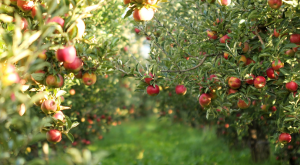
Project Partner: Tera Johnson
Student Team: Drew Betschler, Hunter Downey, Alyssa Westra
Project Title: Farm Finance: Honeycrisping an Apple Orchard
Project Topic: We are partnering with Tera Johnson and an organic apple orchard in southeastern Minnesota to help predict future farm financials through a proforma model. This will require analysis of historical financial data as well as potential costs to adapt a more modern approach to the farm. These costs will be incorporated through a cost conversion calculator to find the cost of integrating different forms of agritourism into the farm to compete with local competitors. The current owners are retiring and want to sell the orchard. This financial model will help promote the orchard to potential buyers, enticing them to the budding opportunities for business in Minnesota.
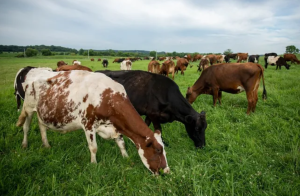
Project Partner: Tera Johnson
Student Team: Jake Gross, Cole Hicken, Johnny Scheps
Project Title: Managed Dairy Grazing
Project Topic: In this project we will be taking a deeper dive into the world of managed dairy grazing. In partnership with Tera Johnson and the Managed Dairy Grazing Apprenticeship program we will be compiling research that will assist with giving a better understanding of the market
surrounding managed dairy grazing technology, PaddockTrac, that they are looking to improve upon. Specifically, we will be investigating methane reduction, pollinator/bird habitat, and grass fed milk health benefits surrounding grazing practices. Along with this, we will also look into different food certifications and their parameters that could assist managed grazing producers nationwide. Finally, we will take a peak at what other grazing leaders around the world are focusing on, and compile a list of implementations that could assist in the growth of dairy grazing within the United States.
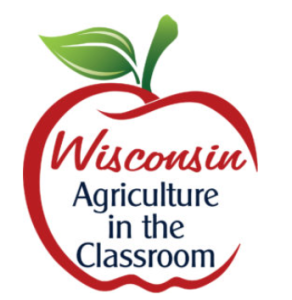
Project Partner: Beth Schaefer
Project Organization: Wisconsin Agriculture in the Classroom
Student Team: Calli Huskisson, Quinn Boerger
Project Title: Cultivating Wisconsin: A Comprehensive Map of America’s Dairyland
Project Topic: We are partnering with Wisconsin Agriculture in the Classroom; an organization run through the Farm Bureau of Wisconsin. The mission of this department is to enhance the agricultural literacy of students in Pre-K through 12th grade and collaborate with industry experts, volunteers, and educators. To assist with this department, we will be producing an informative, unique, and interactive map resource that can be distributed to educators and students state-wide. Nonnegotiable components that will be included in our map will be information about the regions and counties in Wisconsin and the main commodities that each county contributes. We will sift through and analyze agricultural census data to put towards creating our digital resource and then use programs like ArcGIS-Pro and ArcGIS-Online to help in the production of the map. We are extremely excited to work alongside Wisconsin Agriculture in the Classroom to create and provide a resource that will be a timeless and highly informational asset to the students, educators, and residents of Wisconsin.
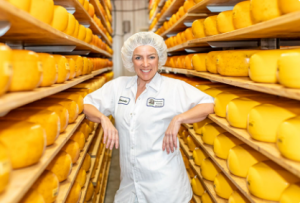
Project Partner: Jeff Schwager
Project Operation: Marieka Gouda
Student Team: Sam Allard, Cyrus Hill, Alissa Ihlenfeld, Emily Strauss
Project Title: Marieke Gouda: Recommendations on Transition to Stock Production
Project Topic: Marieke Penterman, founder of Marieke Gouda, moved from the Netherlands to Wisconsin to start a dairy farm and introduce her traditional Gouda cheese making techniques to the United States. Under her stewardship, the company has achieved remarkable success, winning over 208 awards. Up to this point, Marieke Gouda has employed a make-to-order production method. In order to expand distribution, the company is embarking on a transition to producing stock with the assistance of Jeff Schwager, former CEO of Sartori Cheese and UW-Madison AAE/ABM Students. The objective is to shift from a purely make-to-order model to a more flexible hybrid system that includes both make-to-order and make-to-stock practices. This transformation is further supported by the integration of Profin, a new inventory management software, to help streamline operations. Our project aims to facilitate this transition by providing comprehensive recommendations through the analysis of IRI and KPU data, optimizing the new inventory system, and refining the cheesemaking process to ensure Marieke Gouda’s continued tradition of excellence and innovation.
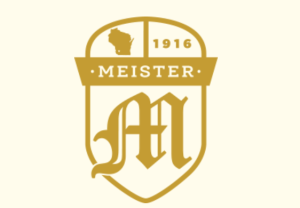
Project Partner: Jeff Schwager
Project Operation: Meister Cheese
Student Team: Morgan Knilans, Greta Plummer, Maiah O’Rourke, Katie Weick
Project Title: Meister Cheese Marketing Master Plan
Project Topic: UW-Madison students are collaborating with Meister Cheese to curate a comprehensive business and marketing plan to support the launch of a branded retail line of specialty cheese. This will entail students combining data and market analyses to develop a deeper understanding of the branded retail market. Additionally, the group will tour the facilities to gain understanding of the company, their capabilities, and prior work on the project. This final deliverable will be a business and marketing plan tailored to the needs of Meister Cheese.
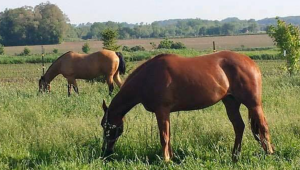
Project Partner: Bill & Anne Conzemius
Student Team: Natalie Sander, Mackenzie Shanahan, Taylor Spellman-Fife
Project Title: A Financially and Environmentally Sustainable Future for a Fitchburg Farm
Project Topic: Bill and Anne Conzemius’ 120 acre farm located in Fitchburg, WI has been operating for the past 22 years and currently contains 75 acres in the Conservation Reserve Program, a horse boarding facility, and a cash crop operation. Bill and Anne hope to find an alternative use for the acreage currently in the Conservation Reserve Program. Additionally, they hope to mitigate large tax increases by exploring different options with the horse boarding facility. We plan on exploring the different tax laws and sustainable agriculture initiatives for the CRP land. This is the second year Bill and Anne are working with AAE Capstone students on this project, and we will build upon research from the previous project related to canola production and possible university partnerships for the CRP land. We plan to create a thorough report for Bill and Anne over the course of the semester that will provide them with financially and environmentally viable solutions to their farm’s issues.
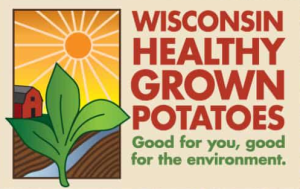
Project Partner: Deana Knuteson
Project Organization: Wisconsin Healthy Grown Potatoes
Student Team: Joshua Mumm, Grace Searls
Project Title: Creating a Comparative Rubric for WI Healthy Grown Potatoes Certification
Project Topic: Our project focuses on developing a user-friendly rubric for potato farmers seeking WI Healthy Grown (WHG) certification, emphasizing sustainability and environmental friendliness in their growing practices. The rubric aims to facilitate farmers’ understanding of WHG certification requirements and enable comparisons with other industry standards, such as those set by major companies like Walmart or Kroger. We’re breaking down various aspects of potato production and growth, including field practices, data management, and pest controls, into measurable metrics aligned with WHG goals. Our team is systematically comparing these metrics with standards set by large buyers, simplifying the process for farmers to assess their practices against market demands. We’re prioritizing clarity and accessibility in our rubric, avoiding technical jargon and providing practical guidance on measuring environmental impacts. We are also creating an accompanying white paper that will provide a detailed analysis of the methodology behind the creation of our comparative rubric for WI Healthy Grown Potatoes certification. It will outline the research process involved in identifying key metrics for sustainable potato production and aligning them with WHG standards and those of major industry buyers. This white paper will offer insights into the rationale behind our approach, highlighting the importance of clarity and accessibility in certification processes. This initiative responds to the need for streamlined certification processes and supports farmers in adopting sustainable practices effectively.
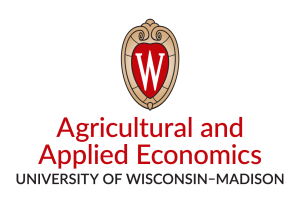
Project Partner: Michaela Thaw
Project Organization: Department of Agricultural & Applied Economics
Student Team: Josie Gonzales, Kozon Lee, Lucy Phillips
Project Title: AAE Marketing Revamp
Project Topic: UW-Madison students are partnering with the department of Agricultural and Applied Economics to develop a compound marketing initiative. This campaign aims to enhance communications and outreach platforms with the objective to boost engagement and recruitment for the department. First, the website will be streamlined to be more readily accessible for prospective and enrolled students. In addition to updating the website, a structured schedule and templates will be established for social media posts, expanding AAE visibility among students and affiliates. The posting regimen will spotlight course options, upcoming events, recent advancements in research, student opportunities, and more. Additionally, graphics and markups will be made for branded giveaways to generate a stronger sense of community and pride for the department. Finally, a new pamphlet will be developed to generate a more appealing draw for prospective students and potential partners.

Project Partners: Kurt Thomas & Denise Bond
Project Operation: Ornua
Student Team: Lincoln Miller, Megan Moede, Bella Post, Zachary Smith, Rory Tevlin
Project Title: Kerrygold & Green: Developing Tools for a More Sustainable Ornua
Project Topic: Irish dairy cooperative Ornua is seeking to more clearly convey its commitment to sustainability to consumers and competitors through various priorities. Developing a product sustainability calculator and reporting on the sustainability goals of top Ornua customers will allow them to communicate better how the company is meeting its goals in its production processes. Additionally, competition analysis on the practices of Ornua’s top competitors will better enable them to differentiate themselves and their products, and provide a deeper understanding of where new progress can be made. Finally, our team plans to craft a vision statement that captures Ornua’s values and progress towards sustainable business practices in their North American operations, assuring customers and competitors of their legitimate work towards creating a more sustainable company and planet.
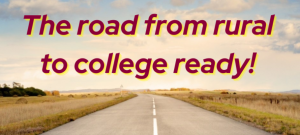
Project Partner: Jennifer Blazek
Project Organization: College for Rural Wisconsin
Student Team: Ellie Capra, Sadie Goettl, Claire Leahy
Project Title: College for Rural Wisconsin: The Road from Rural to College Ready
Project Topic: Rural students are often at a disadvantage when it comes to post-secondary education because of the lack of support and information from their schools and communities. College for Rural Wisconsin (CRW) is a new program that was developed to help make college more accessible for students in rural communities. We designed a survey to help us collect data from current rural high school students and current UW-Madison students who came from rural communities about their experience applying to and attending post-secondary education. After analyzing the data, we will determine the needs of this group and develop strategies that will offer better support to our rural students. Next, we will compare this new program to similar programs to see what can be improved and what it is doing well compared to others.
Spring 2023 CALS Consulting Projects
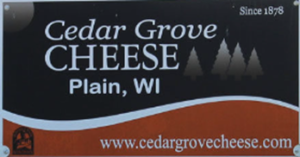
Project Partner: Bob Wills, Cedar Grove Cheese
Student Team: Hunter Huschitt, Nicholas Jacoby, Douglas Kirkhofer, and Nelson May
Project Title: Cedar Grove Cheese Branding and Marketing
Project Description: This project is a partnership between UW-Madison Students and Cedar Grove Cheese to launch a new brand of cheese curds called “Climate Curds” and connect consumers with the sustainability efforts of Cedar Grove’s dairy farmers. This will entail outreach to both the farmers employed by Cedar Grove to identify marketable sustainability efforts, and to consumers to gauge what would be of interest to consumers. Then it will consist of working with Cedar Grove to create a better online marketing campaign for existing products, utilizing the sustainability data collected from the farmers and market research. Finally, this project will use this information to create a completely new branded product for Cedar Grove Cheese which is scalable, sustainable, and offers new opportunities for farmers to be paid for ecosystem services.
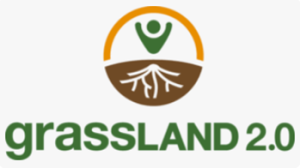 Project Partner: Sarah Lloyd, Grassland 2.0
Project Partner: Sarah Lloyd, Grassland 2.0
Student Team: Peter Bevington, Nathan Daniels, Jaden Henneman, Genevieve Whitehead
Project Title: From Row Crops to Pastures: Assessing the Viability of Grass-Fed Farming in the Driftless Region
Project Topic: Grassland 2.0 is working on turning steep cropland into pastureland in the Driftless region with the overall goal of lowering erosion, decreasing runoff, increasing carbon sequestration, and increasing grass-fed beef production. We will collect data from the Driftless region to analyze the current number of acres under pasture, number of cattle, and number of cow/calf operations compared to finishers. Next, we will have to research potential outcomes evaluating the number of acres that could be pastured, the number of cattle that could be supported on these acres, and the number of cattle that could be processed through current processors. Looking at these results, we will assess the logistics of Driftless Grass-Fed Beef through different operations and marketing efforts. Using data and new technology, we will have the tools to economically and environmentally optimize the Driftless region cropland.
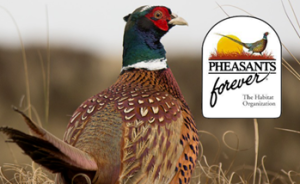 Project Partner: Josh Bendorf, Pheasants Forever
Project Partner: Josh Bendorf, Pheasants Forever
Student Team: Kat Eugster, Alex Held, Kirstin Novak, Zachary Wiegel
Project Title: Cropland Management with Pheasants Forever
Project Topic: Pheasants Forever recently reached out to us concerning their Precision Ag and Conservation services. By utilizing precision ag data, such as yield maps and soil types, Pheasants Forever is able to analyze acreage to find locations where crops aren’t profitable. Replacing low producing acres with perennial grasses can often increase profits for farmers. They have been struggling with reaching more farmers and are actively seeking new ways to engage with new clients. Through past experience, they explained that some individuals have found their services misleading, assuming that they are strictly turning farmland into public areas such as hunting reserves. However, this is exactly the opposite of what Pheasants Forever is looking to do. As students, our responsibility is to offer suggestions to Pheasants Forever to help them bridge the gap between land conservation and land owners. In order to help Pheasants Forever achieve their goals, we will construct an in depth marketing plan. This plan will include supporting evidence as to why these suggestions would work, how they would work, and most importantly why they will continue to work for years to come. The marketing plan will also include a financial plan with potential costs and other general marketing strategies such as a rewards program, advocate luncheons, and social media outreach to name a few.
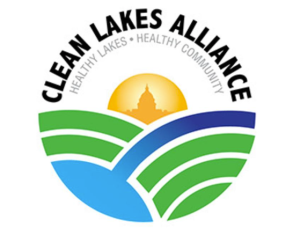 Project Partner: Jason James & Alex Vitanye, Clean Lakes Alliance
Project Partner: Jason James & Alex Vitanye, Clean Lakes Alliance
Student Team: Alexandra Bogner, Bethany Foss, Keegan Kubicki, Sadie Sutter, Zachary Zhou
Project Title: Clean Lakes: An Amenity to Recruit & Retain Survey
Project Topic: Our student-designed survey for our degree Capstone falls within a larger project directed by the local non-profit Clean Lakes Alliance. The guiding principle is viewing the lakes as an amenity used to recruit and retain the workforce of the greater Madison area. We seek to analyze the qualitative benefits of the lakes to the region by soliciting survey results from two demographic groups: the future workforce found through the University of Wisconsin-Madison and current employers in the area. We are additionally seeking the consultation of Professor Matthew Winden of the University of Wisconsin-Whitewater for survey design expertise. As students, our work with Clean Lakes Alliance seeks to provide a different perspective as we are the future workforce. The end-of-semester deliverables by our team are to design two surveys separated by each demographic group, with the plan to send out the survey to the future workforce for data collection, and to leave Clean Lakes Alliance with the second survey for current employers and data analytics for their use of results for marketing purposes. Clean Lakes Alliance intends to use this data alongside their larger project to promote monetary and nonmonetary support for the organization.
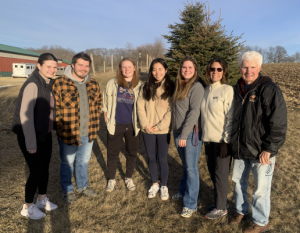 Project Partner: Bill & Anne Conzemius
Project Partner: Bill & Anne Conzemius
Student Team: Wendy Bae, Alyson Buchholz, Brynn Flanders, Jacob Kafer, Emily Raisleger
Project Title: Fitchburg Farm: Furthering Financial Prosperity and Sustainable Outcomes
Project Topic: Mr. and Mrs. Conzemius offered this project opportunity to UW-Madison for various reasons that are not only limited to their financial interests but for education purposes as well. Mr. and Mrs. Conzemius own 120 acres in Fitchburg, WI. The land consists of a farm that has been used for cash crops, 75 acre grass prairie, a 19 stall horse facility and an indoor riding arena, and a barn for holding music events. It is important to note that while the horses have been on the farm for 20 years, they have not been contributing to income and will soon increase taxes by 94%. Additionally, Mr. and Mrs. Conzemius are not interested in cash crops used as feed for cattle. The major goals in this project are to make the horse arena and prairie area profitable, to take new approaches that are more sustainable & environmentally friendly, and to utilize the rest of the farm land for promoting agricultural education and community engagement. As a final deliverable, we will be preparing three to six options for Mr. and Mrs. Conzemius to pursue along with analysis of each of these options.
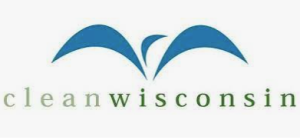 Project Partner: Kata Young, Clean Wisconsin
Project Partner: Kata Young, Clean Wisconsin
Student Team: Josie Minz, Tristin Schulz, Sam Wood
Project Title: The Cost of “Business as Usual” by 2050: Clean Wisconsin Paving the Pathway Towards Carbon Net-Zero
Project Topic: This project, partnering with Clean Wisconsin, is analyzing how climate change will impact Wisconsin’s agricultural sector under business-as-usual conditions. Clean Wisconsin’s mission is To protect and preserve Wisconsin’s clean water, clean air, and natural heritage. As an organization, they hope to achieve and work towards making it possible for everyone to have access to healthy air and clean drinking water so that residents, businesses, and visitors can enjoy an abundance of swimmable and fishable lakes, rivers, and streams. In addition, Clean Wisconsin is helping encourage the transition towards green energy and other sustainable practices. As candidates for this program, we are working alongside an intern, as well as a project advisor from Clean WI for mentorship and direction. With our diverse backgrounds, together we will forecast weather trends for the years 2023, 2030, 2040, and 2050 based on monthly historical weather data and the WICCI projections to try and look at how climate change will impact Wisconsin. After the calculation of, modeling, and analysis of our forecasts, we’ll look to identify the “Worst-case scenario”, “Best-case scenario”, and “Most likely scenario”, and how they will impact Wisconsin’s top 10 agricultural commodities. The process for this will be done on various open-sourced programming languages such as Python and R. From our work this semester, we hope to create a baseline for what would be considered Business as usual for 2050 using our forecasting of Wisconsin’s top 10 commodities. In addition, these forecasts will aid the other Clean Wisconsin team in the development of their Natural Climate Solutions. This project is just a start at analyzing how the current Business as Usual agricultural sector in Wisconsin might change in years to come. The end goal of this project is to leave it in a state where it can be easily picked up by Clean Wisconsin employees.
 Project Partner: Kata Young, Clean Wisconsin
Project Partner: Kata Young, Clean Wisconsin
Student Team: Allie Brummond, Grant Goodell, Andrew Retherford, Rongbo Zhang
Project Title: Clean Wisconsin’s Economic Analysis of Natural Climate Solutions
Project Topic: Wisconsin farmers can benefit financially from using “specialty” crops and grass-fed beef with the goal of reducing greenhouse gas emissions. In coordination with Clean Wisconsin, we will collect current and historical data from these natural climate solutions (NCSs) based on their suitability, productivity, and marketability. Taking the cost of NCSs into account, we will propose the best solution for several future Wisconsin climate models.
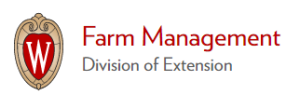
Project Partner: Trisha Wagner, UW-Extension Farm Management
Student Team: Jacob Criter, John Dvorak, Dausyn Pravecek, Steven Wang
Project Title: Growing for our Future: Strategies for Agricultural Education and the Workforce
Project Topic: Our plan for the project is to work alongside the reintroduction of the short course program here at UW. We are planning to focus on the further education of high school students into the agriculture Industry, as well as introduce agriculture to those who are not familiar with it such as engineering or data science majors. We plan to create a deliverable of a performance checklist to allow for scaling of the roles on the farm, benefitting the workers on the farm, as well as allowing existing farmers to grow their current operations and bring them to the current times of technology and equipment. In tandem with our project deliverable, we will be working alongside Trisha Wagner to answer her questions about the ag workforce and where the future of the industry is heading.

Project Partner: Trisha Wagner, UW-Extension Farm Management
Student Team: Matt King, Ben Kronberg, Trayson Ortner, Grant Vosters
Project Title: Analysis of Automated Systems within the Dairy Industry
Project Topic: For our project, we will collect data and develop an initial “scaffolding” of a new program within the UW- Extension for farmers looking to automate parts of their operations. In our discussion with Dairy Business strategist Stephanie Plaster, we learned that many farmers come to the UW-Extension looking for ideas on what their next farm improvement may be. They have the capital, and they have noticed other farmers have been slowly implementing many different kinds of automation. These farmers often don’t have an idea of what is considered a “worthy” investment and have had to take big risks in being some of the first to implement these systems. Stephanie pointed out that this is a huge area for our group to explore. Automation is a massive category in the technology sector, and there are many different kinds for us to focus on. In partnering up with Stephanie and her colleagues, we are assisting them in getting a new project off the ground and jump-starting it by helping them with the first few steps. As anyone who has started a business or project has said, the first few steps are often the hardest.

Student: Audra Sarver
Project Title: Workforce Mapping and Data Analysis in Southwest Wisconsin
Project Topic: Redevelopment Resource’s goal for this project is to research barriers to employment and firm growth in southwest Wisconsin, also known as the Driftless region, so that we can provide guidance to employers and municipalities on how to best recruit and retain employers for the vitality and livelihood of the region. We are specifically looking at Crawford, Grant, Green, Iowa, Lafayette, and Iowa counties. Like many places in the U.S., employers in this region are facing challenges post-pandemic filling positions to maintain business hours, fulfill demand, and be able to grow. Common with other rural areas, this region pre-and-post-pandemic has faced challenges in being able to retain workers, businesses, and populations. Our hope is to be able to provide Prosperity Southwest and the people they serve a clear picture of employment needs/wants throughout this region, such as where there are possible deserts of childcare, gaps in transportation services, areas where people are housing cost burdened, and where there may be other issues. Our method will be distributing and collecting employer and employee surveys followed by data summarization and mapping analysis. As an intern on the project, I will be creating base maps with 2019 data from OnTheMap, revising survey questions, and mapping and analyzing the data once collected.
